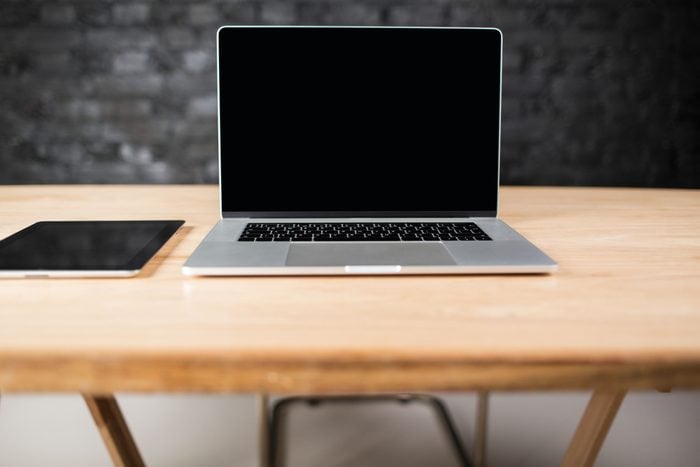
Don’t say it online if you wouldn’t say it in person
“Shielded behind a computer screen, some people forget they are interacting with other human beings, saying things online that they would never say in person,” observes etiquette expert Diane Gottsman. But the reality is, social media is social interaction. It’s not just like real life; it is real life. So act accordingly by asking yourself before posting anything: Would I be comfortable saying this face to face?
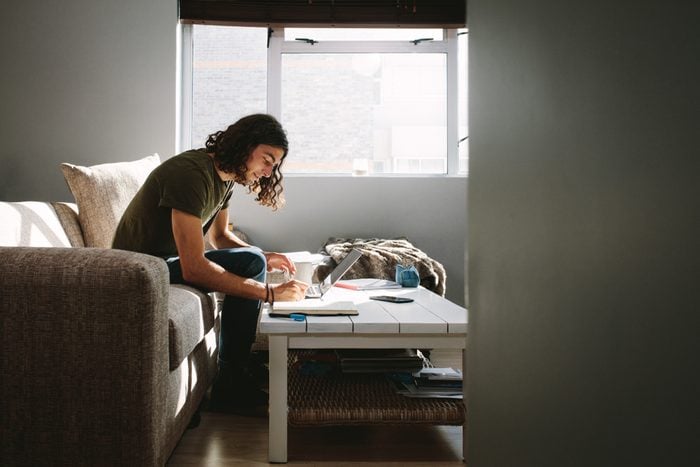
Don’t behave differently online than you would person
“In the ‘real’ world, would you randomly approach an acquaintance and ask them for a favor?” asks etiquette expert Margaret Page. “Would you constantly talk about yourself without any regard for others around you? Would you jump into a conversation with strangers without introducing yourself? Accept a gift without saying ‘thank you’?” By extension, these behaviors are just as rude online, says Page. Find out about 10 weird effects of social media on your brain.
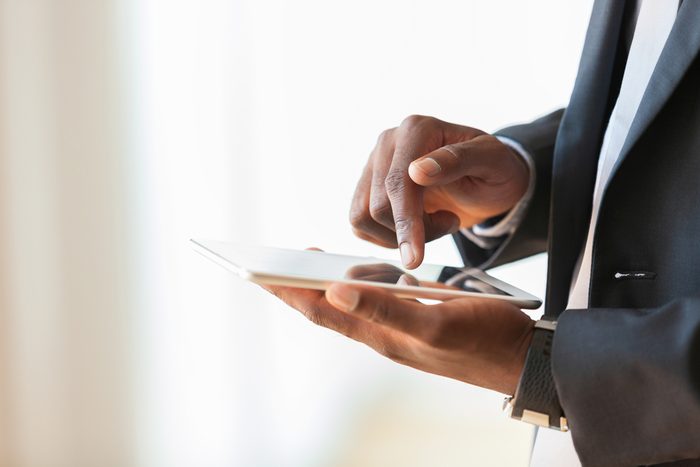
Don’t tag indiscriminately
Twitter notifies people who have been tagged, so unless you want to hurt someone (and why would you want to do that?), don’t tag people in negative mentions. If you need a refresher on the real (and polite) purpose of tagging, the website Business Success Edge offers a useful guide:
- to provide a link to someone’s social media profile
- to make your post visible to the person you tagged
- to make your post visible to the contacts of the person you tagged
Before you tag someone, ask which of these reasons applies. If the answer is “none of them” or “to call them out,” skip the tag.

Don’t publicly engage with trolls
Some people online live to get a rise out of others. They’ll state outrageous opinions or personally insult your pictures and profile. When you feel you’re being trolled on social media, don’t get drawn into a public spat. There’s a saying online: Don’t feed the trolls. Ignoring the person is the easiest way to get them to stop; if the harassment continues, contact the moderators of the platform you’re using to intervene.

Create a separate account for your business contacts
Many jobs require a social media presence, point out the social media experts at Rocket Social. Just be sure to use a separate, new account for your work. Your employer would rather not have your friends linking to bizarre memes on the same account you conduct business (and do you really want your clients to see you drinking out of a coconut in your beachwear?). Even if your job doesn’t require you to be on social media, it’s a good idea to keep your business contacts separate from your friends. Make sure to avoid these 12 LinkedIn mistakes that could cost you your job.
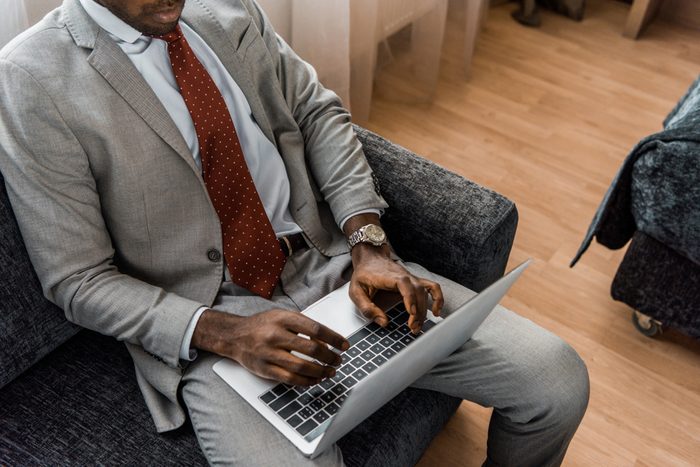
Don’t try to “friend” people you don’t know
In the early days of social media, people sent random friend requests to strangers all the time. That’s not cool anymore, especially with the heightened concerns of privacy and being hacked. Even if you don’t mind friend requests from people you don’t know, you can’t assume others will feel the same way: “When sending a friend request, include a personal message of introduction,” advises Page.
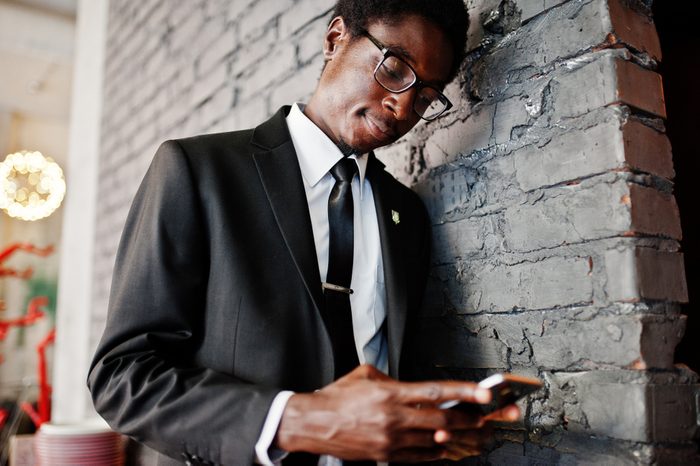
Stay offline when you’re angry
Gottsman makes the point that if you’re feeling mad at the world, give yourself some time to cool off before going online. Reacting in anger is always a bad idea. “This is true in any part of life, but especially on social media,” Gottsman writes. And if you have a complaint you want to get off your chest, pause, think, and then follow these rules for complaining on social media.
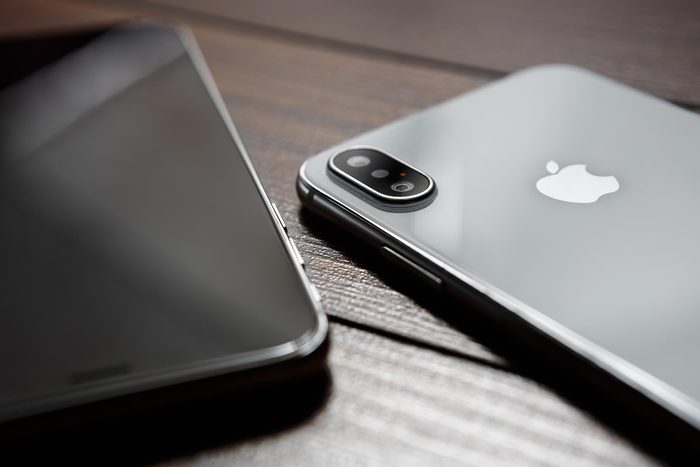
Take screenshots responsibly
A screenshot is a snapshot of something on your device’s screen—email, text messages, DMs. “When you are texting or emailing someone, the assumption is that it’s between the two of you,” notes Chelsea Klukas in Calgary Herald. “Posting a [screenshot of a] conversation without the other person’s consent is invasive and potentially detrimental to your relationship, whether personal or professional.” So don’t post unless the person has given you permission to—preferably in writing.
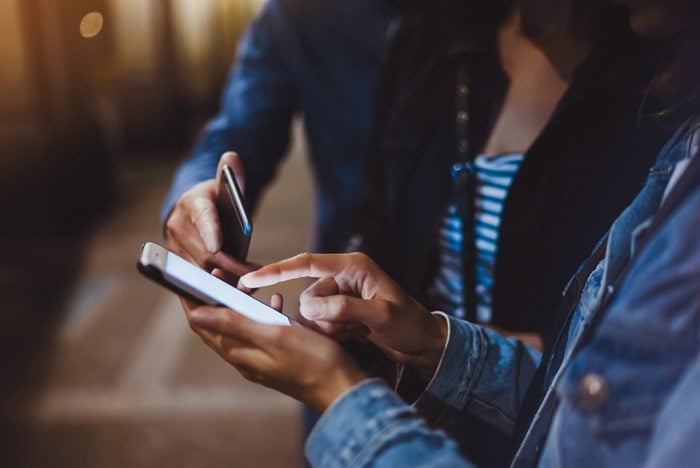
Don’t post photos of someone without permission
Just because someone allowed you to take their photo doesn’t mean they’re ready to have you post it. Online trends expert Scott Steinberg stresses that it’s always a good idea to get a person’s OK before you post a photo. If the setting is a public place—a bar, ski slopes, the beach—people don’t always have the legal right to privacy, but it’s nicer to seek their permission before posting.

Don’t forget to fact-check
“Spreading inaccurate information will quickly backfire,” warns Gottsman. “Be cognizant that whatever you put out there is open to scrutiny, accuracy, and truthfulness.” This is true when you’re blogging, vlogging, or podcasting original content, and even when you’re merely reposting. Good social media etiquette calls for some attempt at accuracy. Snopes is an excellent resource for fact-checking information people are passing around and for determining whether that viral post is actually true.
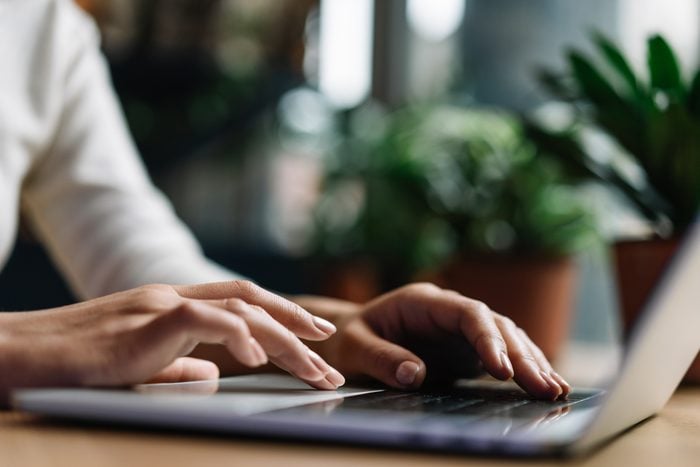
Share responsibly
Social media has transformed over the years, and there are new expectations about what you should (and shouldn’t) say. For instance, posting too many updates and photos doesn’t keep friends interested—it just clogs up their feeds. Pay attention to these other warning signs you’re oversharing on Facebook.
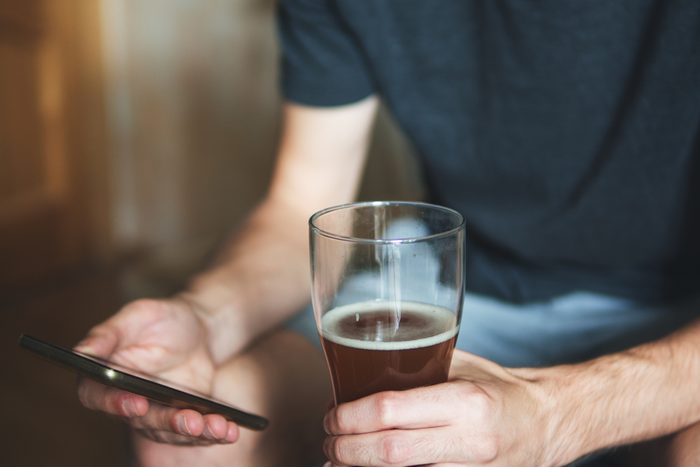
Don’t post when you’ve been drinking
Think drunk dialing is bad? Drunk posting magnifies the problem by precisely the number of people who have access to your social media. “Alcohol can get into your head, and it might lead you to post some things you don’t mean or things you don’t want other people to see,” notes Rocket Social. A good rule of thumb: If you’re too drunk to drive, you’re too tipsy to post on social media.
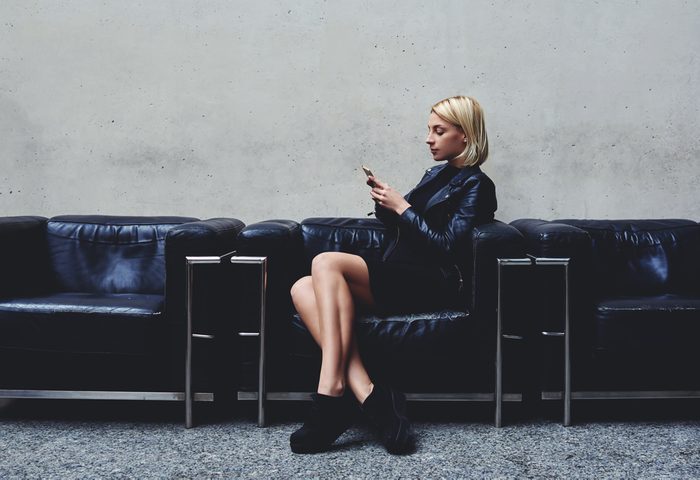
Just because you can post doesn’t mean you should
“It’s thrilling to know you can instantly share what’s on your mind,” Gottsman reminds us. “However, social media should not be used to publish an endless stream of rants, ramblings, and things you didn’t think through.” For instance, you’ll want to rethink these 11 photos you should never post on social media.
